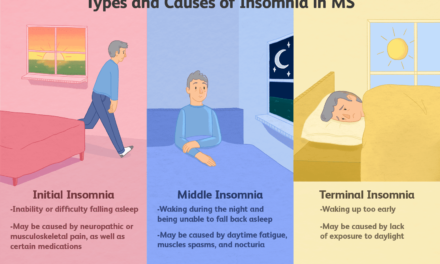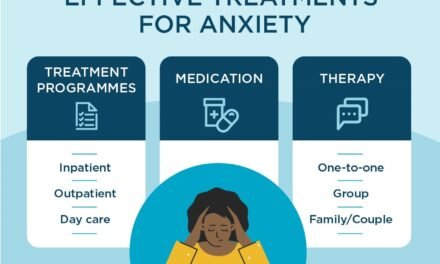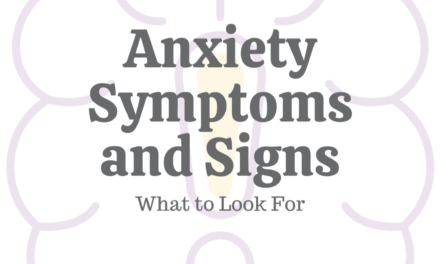Introduction to can exercise help anxiety?:
Can Exercise Help Anxiety? Absolutely. Exercise is not just beneficial for physical health but also plays a crucial role in improving mental well-being. Many studies show that regular physical activity can help reduce symptoms of anxiety, offering a natural way to manage stress and improve mood. Whether it’s a quick walk, yoga, or more intense workouts, incorporating exercise into your routine can be a powerful tool in combating anxiety and improving overall mental health. In this article, we’ll explore how exercise impacts anxiety and why it’s considered an effective approach for managing it.
Anxiety is one of the most common mental health challenges globally, affecting millions of people each year. Symptoms can range from constant worry and nervousness to physical discomfort like headaches, rapid heartbeat, and fatigue. While medication and therapy are traditional treatments, there’s growing evidence that exercise can be a powerful tool to help manage and reduce anxiety.
The Science Behind Exercise and Anxiety:
Exercise impacts anxiety through several physiological and psychological mechanisms. When you exercise, your body releases endorphins—natural chemicals in the brain that enhance mood and reduce pain perception. This “feel-good” hormone is one reason why physical activity often leads to an improved sense of well-being.Additionally, exercise reduces the production of stress hormones, such as cortisol.
Elevated levels of cortisol are linked to chronic anxiety and stress, so lowering these hormones can naturally alleviate some anxiety symptoms.Regular physical activity also enhances cognitive function by increasing blood flow to the brain and encouraging neurogenesis (the creation of new brain cells). This can improve mental clarity, concentration, and resilience against stress.
How Exercise Helps Manage Anxiety:
Immediate Stress Relief:
Even a short burst of exercise, like a 10-minute walk or quick stretch, can bring immediate stress relief. This is due to the release of endorphins and the distraction exercise provides from anxious thoughts. For people experiencing an anxiety attack or a period of acute stress, physical movement can help ease the intensity of symptoms.
2. Improved Sleep:
Anxiety often leads to disrupted sleep, and poor sleep quality can exacerbate anxiety. Exercise is a well-known remedy for improving sleep, as it helps regulate your body’s circadian rhythms and allows for deeper, more restful sleep. The better you sleep, the more equipped you are to handle stress and anxiety during the day.
3. Boosted Self-Confidence:
Regular physical activity can boost self-esteem, particularly when you achieve fitness goals, whether that’s running a 5K or lifting heavier weights. This improved sense of self-worth and accomplishment can create a buffer against anxiety by instilling a sense of control and capability.
4. Mindfulness and Distraction:
Many forms of exercise, such as yoga or swimming, have a meditative quality to them. Focusing on your breath, your body’s movements, or the surrounding environment helps you stay present in the moment. Mindfulness practices like these are effective tools for reducing anxiety because they encourage you to shift focus away from worrying about the past or future.
5. Long-Term Reduction in Anxiety:
Regular exercise not only provides short-term relief but also helps in reducing anxiety symptoms over the long term. A consistent exercise routine has been shown to decrease baseline anxiety levels and improve overall mood stability.
Best Types of Exercise for Anxiety
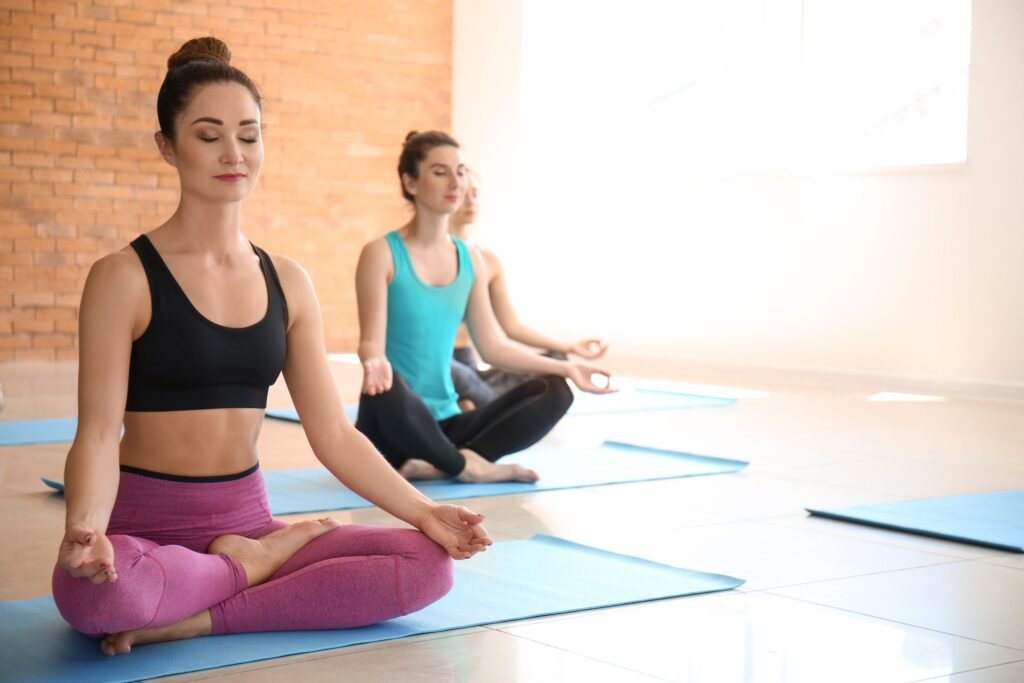
While almost any form of physical activity can help reduce anxiety,
certain types of exercise may be particularly effective:
Aerobic exercise:
Activities like running, swimming, cycling, or dancing are proven to reduce anxiety. Aerobic exercises elevate your heart rate, release endorphins, and provide a natural “high” that calms your mind.Yoga and Tai Chi: These practices combine movement with deep breathing and mindfulness, both of which have been shown to ease anxiety. They promote a sense of calm, help regulate your nervous system, and can lead to a meditative state.
Strength Training:
Lifting weights or doing resistance exercises can help release pent-up tension. The focus required during strength training, coupled with the sense of accomplishment after completing sets, can provide a mental break from anxious thoughts.
Walking:
One of the most accessible forms of exercise, walking, especially in nature, has significant mental health benefits. Being outdoors in fresh air can lower cortisol levels, and the rhythmic nature of walking can induce a calming effect on the brain.
Practical Tips for Getting Started
1. Start small:
If you’re new to exercise or experiencing significant anxiety, the idea of starting a workout routine may feel overwhelming. Begin with just a 10-minute walk or a few gentle stretches each day, and gradually increase your activity level as it becomes part of your routine.
2. Consistency is key:
Regular exercise—done a few times a week—is more effective than sporadic, intense sessions. Try to build a routine that includes physical activity that you enjoy, whether it’s dancing, yoga, or a daily jog.
3. Focus on enjoyment:
Choose activities that make you feel good, both physically and mentally. If you hate running, don’t force yourself into it. Instead, try something else like swimming, cycling, or even a group fitness class that provides a sense of community.
4. Pair exercise with mindfulness:
Consider pairing physical movement with mindfulness practices, like yoga or meditation, for maximum anxiety relief. This combination can help lower stress levels and increase your mental resilience.ConclusionExercise is a powerful tool in managing anxiety, providing both immediate and long-term benefits.
By improving your mood, reducing stress hormones, and promoting mindfulness, physical activity can be a natural and effective way to alleviate anxiety symptoms. For anyone dealing with anxiety, incorporating regular exercise into your routine could be a crucial step towards improving mental health.
Advantages of Exercise for Anxiety:
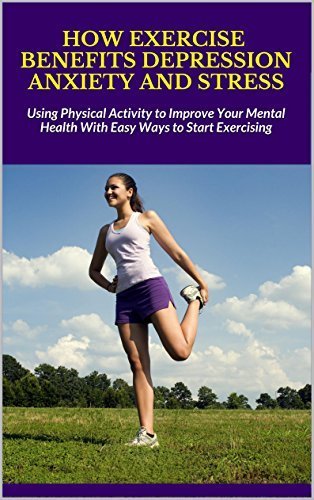
1. Natural Stress Relief:
Exercise triggers the release of endorphins, which naturally reduce stress and anxiety, offering an effective, drug-free way to alleviate symptoms.
2. Improved Sleep:
Physical activity can lead to better sleep quality, which in turn reduces anxiety. Better sleep helps regulate mood and stress response.
3. Enhanced Self-Esteem:
Achieving fitness goals, no matter how small, boosts self-confidence, creating a positive mindset that counters feelings of worry and inadequacy.
4. Mindfulness and Focus:
Exercises like yoga, swimming, or running encourage mindfulness and keep you present, distracting you from anxious thoughts.
5. Long-Term Anxiety Reduction:
Regular exercise not only provides short-term relief but also helps lower baseline anxiety over time, leading to more stable moods.
6. Increased Energy and Resilience:
Physical fitness strengthens your body and mind, helping you cope better with life’s stressors and feel more empowered.
7. Social Interaction:
Group activities or classes can provide social support, which is crucial for managing anxiety. Exercising with others fosters connection and reduces isolation.
8. Cognitive Benefits:
Exercise improves focus, memory, and decision-making skills, which can help you better manage anxious thoughts and stressors in daily life.By incorporating exercise into daily routines, individuals can enjoy these wide-ranging advantages to help manage and reduce anxiety naturally.
Conclusion:
Exercise is a powerful and natural tool for managing anxiety. By releasing endorphins, reducing stress hormones, improving sleep, and promoting mindfulness, physical activity can offer immediate and long-term relief from anxiety symptoms. It enhances self-esteem, cognitive function, and overall mental well-being. Whether through aerobic workouts, yoga, or a simple walk in nature, incorporating regular exercise into your routine can significantly improve your ability to cope with anxiety and lead to a healthier, more balanced life.
you must watch 👁️👁️ this article 👇👇👇



